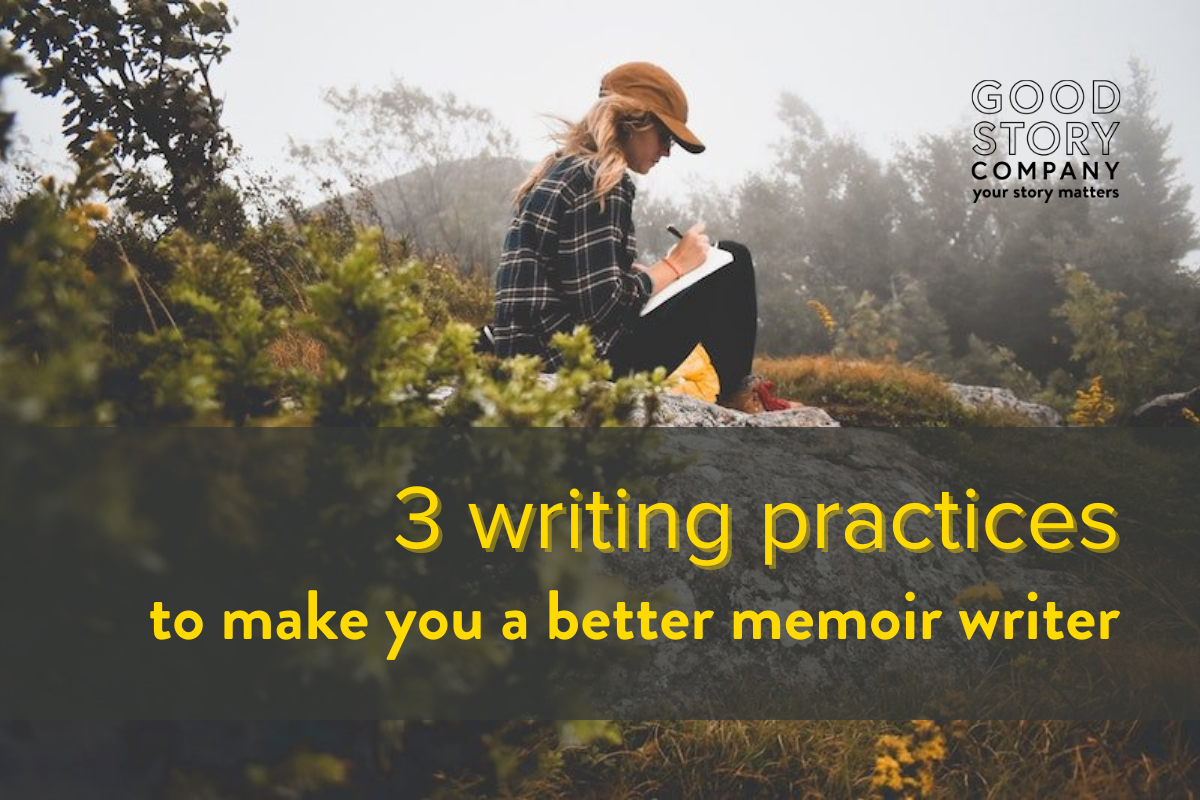3 Writing Practices To Make You A Better Memoir Writer
Ready to take the leap and write about your life? Memoir writing is a personal and devoted practice unlike any other nonfiction. It commands a certain self-awareness and willingness to engage with your past that can make the task itself daunting. If you want your life to come through honest and well written, practicing memoir-style writing is a great way to develop your voice.
Here are three writing practices to make you a better memoir writer and help your memories, reflections, and musings shine bright and clear.
Write your life as you live it …
Good Story Learning is a whole library of tips, workshops, handouts, resources and videos, created just for writers like you. All you need to do is unlock it.
Free write Your Childhood
When writing memoir, whether it’s about your childhood or recent past, you’re writing about events that aren’t fresh anymore. In this memory-focused writing practice, go back to significant memories and push yourself to fill in the blanks. For example, you might have a fond memory of a favorite toy you got one Christmas but rarely think about what you were doing and feeling on Christmas Eve or what it was like finally having the toy the day after Christmas.
Well, think about those surrounding details. Then, write them.
You can write about a single moment, coloring it in like you’re painting the background of a picture. Or, you can flesh the memory out into a short story or chapter-length piece; go beyond that thumbnail and push yourself to see other details you might have ignored.
The goal is to practice storytelling your life. Hone your ability to retell the past by writing memories you have to intentionally immerse yourself in. Find the missing pieces and make the memory fresh again.
Letters To Yourself
Memoirs have a reflective quality that makes them stand apart from other nonfiction. As an aspiring memoir writer, something about who you were in the past continues to inspire you as you are now. The act of writing the memoir itself is going to be an emotional process of looking back and unpacking. If you’re struggling to reflect, or can’t seem to put this reflection into words, start with the small-scale practice of writing a letter.
Pick a memory. For example, it could be the time you fell down the stairs in middle school, tore your pants, and everyone laughed at you. Now, write a letter to that kid. What is the letter going to do: comfort them, promise them a better future, validate them? Think about why this memory is important: was it a turning point, is it a fond memory, is it a memory you’re trying to write through now so that you can let it go?
By writing to your past self, you tap directly into that reflective voice that lies at the heart of memoir writing. In the memoir itself, you’ll weave this into a full scene that shows what happened. But, for the sake of developing your memoir voice, this letter writing practice is like an isolation exercise, working a specific memoir writing muscle.
Journaling - A Daily Writing Practice
Journaling has many benefits: from helping us decompress to giving us an outlet for the thoughts we can’t share with anyone else. Journaling is intimate and personal, it’s where you can write the rawest form of yourself. Coincidentally, that’s why it’s a perfect writing practice to hone your memoir voice.
While your memoir will tap into a reflection that runs farther and deeper than day-to-day experiences, journaling will allow you to practice that same reflection in a different way. Write your life as you live it, and write your day like it’s a short memoir. Go beyond talking about what happened; add on some sensory details, romanticize the memory, and truly reflect with a tone that represents why writing about the day is important to you now. Who knows, you might end up with a few usable chapters!
Incorporate these three exercises into your writing practice to make memoir voice come naturally to you and make your memoir writing stronger.
Book me for a consultation and we can talk about your memoir together!

